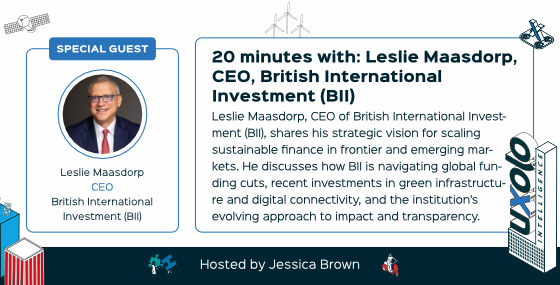COP28: Progress - but not as we need it
Has COP28 really delivered the beginning of the end for fossil fuels? Probably not, and certainly not in the timescale required by climate science.

The final draft of the COP28 Global Stocktake text was adopted on 13 December with no objections – and more holes than a colander.
The final wording in the fossil fuel debate is an even more leaky version of the draft proposed earlier in the week. The final text has been changed from, ‘Reducing both consumption and production of fossil fuels, in a just, orderly and equitable manner so as to achieve net zero by, before, or around 2050 in keeping with the science’ – fairly weak wording, but a statement that for the first time addressed a production phasedown of fossil fuels rather than just emissions – to the following: ‘Transitioning away from fossil fuels in energy systems, in a just, orderly and equitable manner, accelerating action in this critical decade, so as to achieve net zero by 2050 in keeping with the science.’
In terms of semantics COP28 was another win for the fossil fuel lobby and largely a reiteration of what has been said before at all the other COPs. Despite being more watered down than soup in a gulag, the draft is still being pedalled as a landmark that addresses a departure from fossil fuel production.
And it would be if the wording were watertight, binding and backed by a host of financial obligations and milestones that ensured fossil fuel phase-out and a fair deal for developing countries to cope with climate change and making the energy transition.
But none of that happened – at least not with any certainty of delivery by governments: for example, developed markets are still not fully delivering on their $100 billion annual commitment to developed markets for energy transition as pledged in the Paris Agreement. Even the $792 million loss and damage fund, which grabbed global headlines at the start of COP28, is woefully underfunded (under 1% of what is required on annual basis based on the lowest NGO cost-of-damage estimate). And while COP28 president Sultan Al Jaber lauded the progress of what he has dubbed the UAE consensus, the company of which he is also president – ADNOC – plans to boost its oil capacity by 7% over the next four years. And ADNOC is not an anomaly within the global fossil fuels industry; US oil output hit record levels this year for example.
Accepted, the world cannot wean itself off fossil fuels overnight, but boosting production does not constitute “transitioning away from”. And as a report by DNV – Pathway to Net Zero Emissions – highlights, that transition really needs to happen now.
The report very usefully contrasts the risk management consultancy’s best estimate of the most likely energy future – 2.2 degrees centigrade global warming by 2100 – if the current pace of energy transition continues, with the “plausible but very challenging path to achieve net zero emissions by 2050“ and a global average temperature increase of 1.5 degrees by the end of the century.
DNV’s expectation is that fossil fuels will still constitute 50% of energy sources by 2050 under the current pace of transition. To hit the 2050 net zero target, DNV claims fossil fuel needs to drop to a 20% share from its current 80%, and provides a pathway to achieving that by sector, geography, policy and technology – and most significantly, cost.
So what positives can be taken from COP28 that might facilitate a DNV-type 2050 net zero target? Politically, the inclusion of ‘fossil fuels’ in the Cop28 draft text is progress – albeit not much given it has been seven years since the Paris agreement came into effect.
Practically, the COP 28 draft reiterates and strengthens a number of ambitions:
- ‘Tripling of renewable energy capacity globally and doubling the global average annual rate of energy efficiency improvements by 2030.
- Accelerating efforts towards the phase-down of unabated coal power;
- Accelerating efforts globally towards net zero emission energy systems,
- utilizing zero- and low-carbon fuels well before or by around mid-century;
- Transitioning away from fossil fuels in energy systems, in a just, orderly and equitable manner, accelerating action in this critical decade, so as to achieve net zero by 2050 in keeping with the science;
- Accelerating zero- and low-emission technologies, including, inter alia, renewables, nuclear, abatement and removal technologies such as carbon capture and utilization and storage, particularly in hard-to-abate sectors, and low-carbon hydrogen production;
- Accelerating and substantially reducing non-carbon-dioxide emissions globally, including in particular methane emissions by 2030;
- Accelerating the reduction of emissions from road transport on a range of pathways, including through development of infrastructure and rapid deployment of zero- and low-emission vehicles;
- Phasing out inefficient fossil fuel subsidies that do not address energy poverty or just transitions, as soon as possible.’
But those practical ambitions need funding, and on the financing side the COP28 main event was relatively quiet. A host of MDB/DFI and private sector funding deals were signed or committed on the sidelines of the event, and there was a lot of talk about adaptation and climate finance for developing markets in the main conference – albeit very small amounts of new sovereign money pledged.
There was also little mainstream recognition of the bankability and increasing supply chain cost hurdles that even the traditional renewables sector faces in meeting COP ambitions in developed markets, let alone developing markets.
Private sector and commercial bank deal flow in renewables is still snowballing, but the snowball is being pushed uphill, particularly in the offshore wind sector. And relatively untested renewables technologies – SMRs, carbon capture, DAC, and even EV charging (for which there has only been three commercial bank-led project financings globally) – struggle with bankability. In short, bankrolling new transition energy technology is difficult at best. Translate those ambitions for tested technology to developing markets and the hurdles still heighten.
The Uxolo perspective
The real measure of the success of COP28 will be whether the global political elite take on board the repeated recommendations to facilitate – both with concessional support and more pro-climate policies – acceleration and provide an equitable global energy transition that makes 1.5 degrees centigrade global warming a realistic ambition again. It is the same measure that has applied to every COP since Paris and has never yet been met.
Could it happen this time? There are certainly new financing structures and funding supports being developed by both the MDB/DFI and commercial sectors that will help facilitate transition acceleration. And some of the financial heavy hitters in the global oil and gas industry are diversifying into renewables – albeit too slowly and in some cases with a focus on carbon capture and blue hydrogen, neither of which should have a future beyond the transition.
But if the pinnacle to date of COP global political progress is the adoption of the term ‘transitioning away from fossil fuels’, it becomes hard to distinguish between realistic confidence and continued blind faith. There was no demonstrable change of mind-set from fossil fuel producing sovereigns at the event, as the endless debate over phrasing attests to. So at best this loophole-riddled COP was no landmark, just a small milestone. The demise of fossil fuels is inevitable as renewables grows and demand lessens; what COPs need to sort out is a demise in the timescale required by science, and there are few signs of progress on that front.





